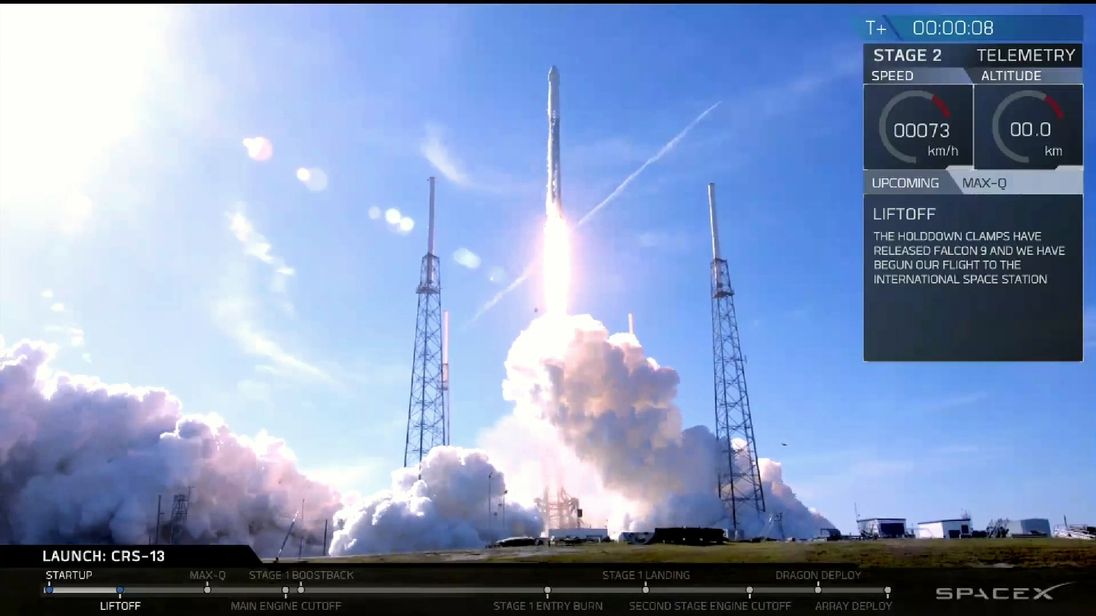The classified "Zuma" satellite, which is so secret the public could not even know which branch of the US administration commissioned it, was launched on Sunday.
However, reports suggest that there may have been a serious issue with the launch, prompting speculation that the satellite was destroyed.
The US Strategic Command, which monitors more than 23,000 human devices in orbit as part of its work for the Pentagon, told Bloomberg it was not tracking any new satellites since the launch.
Citing a US official and two congressional aides who were familiar with the launch, Bloomberg reported that the second stage of SpaceX's Falcon 9 booster rocket failed - losing the satellite.
Unlike the private aerospace company's previous classified launches for the military's National Reconnaissance Office and the super-secret space-plane it took into orbit for the Air Force, there is almost no information available about the Zuma payload.
Zuma is known to be a low Earth orbit satellite (orbiting within 2,000km) which is an orbit necessary both for spy and military communication satellites.
The secrecy surrounding the launch and the involvement of defence contractor Northrup Grumman in building and operating the spacecraft has fuelled speculation that it is defence-related.
The Wall Street Journal cited congressional aides who had been briefed on the Zuma launch, suggesting that the satellite did not separate from the Falcon 9 rocket.
Jonathan McDowell, an astronomer at the Harvard-Smithsonian Centre for Astrophysics, speculated that the second-stage failing could have been due to the payload adapter provided by Northrup Grumman.
"Normally when you buy a rocket launch, you've paid for 'the payload adapter on the rocket final stage (which) pops the satellite off at the end'.
"But on this mission the customer provided its own payload adapter, so separation may be its problem and not SpaceX's problem."
Mr McDowell said it was not plausible that the loss of Zuma is a fabrication to conceal its successful insertion in a secret orbit.
A spokesperson for Northrup Grumman told Sky News: "This is a classified programme. We cannot comment on classified programmes."
SpaceX did not immediately respond to requests for comment.
A spokesperson for SpaceX told Bloomberg: "We do not comment on missions of this nature; but as of right now reviews of the data indicate Falcon 9 performed nominally."

